DeepLearning
Latest

Deep learning could predict car trouble before you notice it
Trying to replicate the sounds your car is making to the mechanic you're talking to is equal parts frustrating and embarrassing. But neural networks could put your best "worn out wheel bearing" impression into retirement. Israeli company 3DSignals uses deep learning to keep track of sounds, listening for deviations from the norm in musical and mechanical acoustics. According to an interview with IEEE Spectrum, the company is in talks with "leading European automakers" to put its ultrasonic microphones in their cars.
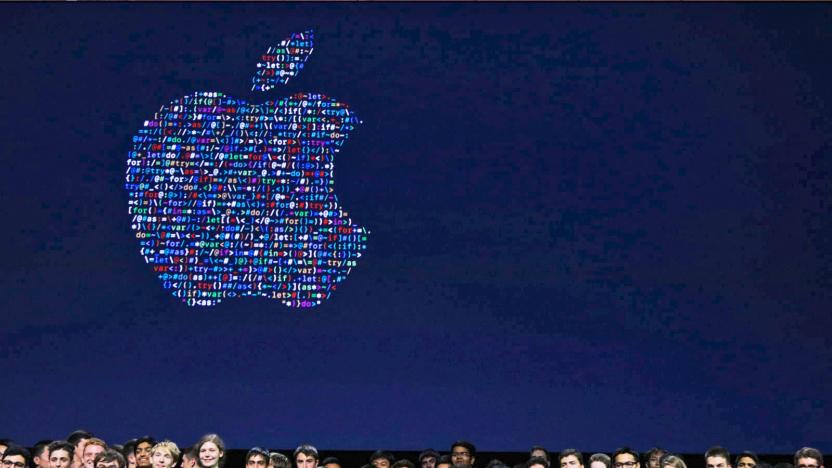
Apple publishes its first AI research paper
When Apple said it would publish its artificial intelligence research, it raised at least a couple of big questions. When would we see the first paper? And would the public data be important, or would the company keep potential trade secrets close to the vest? At last, we have answers. Apple researchers have published their first AI paper, and the findings could clearly be useful for computer vision technology.

Google and Elon Musk open their AI platforms to researchers
Artificial intelligence got a big push today as both Google and OpenAI announced plans to open-source their deep learning code. Elon Musk's OpenAI released Universe, a software platform that "lets us train a single [AI] agent on any task a human can complete with a computer." At the same time, Google parent Alphabet is putting its entire DeepMind Lab training environment codebase on GitHub, helping anyone train their own AI systems.

Facebook shuts off Prisma's live video support
If you're a Prisma fan, you were likely heartbroken when the AI-driven art app lost its Facebook Live streaming feature. Why did it go almost as soon as it arrived? Now we know. The Prisma team tells TechCrunch that Facebook shut off its access to the Live programming kit over claims that this wasn't the intended use for the framework. The platform is meant for live footage from "other sources," such as pro cameras or game feeds. It's an odd reason when Facebook's public developer guidelines don't explicitly forbid use with smartphones, but the social network does state that it's primarily for non-smartphone uses.

AI will shape health care plans for US veterans
American veterans needing health care are about to get help from an unusual source: artificial intelligence. The Department of Veterans Affairs and Flow Health have forged a 5-year alliance that will see the two build a massive medical knowledge graph (based on the records of 22 million veterans) that uses deep learning to customize health plans for vets. The system aims to identify the common genetic factors that make people vulnerable to given diseases and not only improve diagnoses, but recommend treatments on a case-by-case basis.
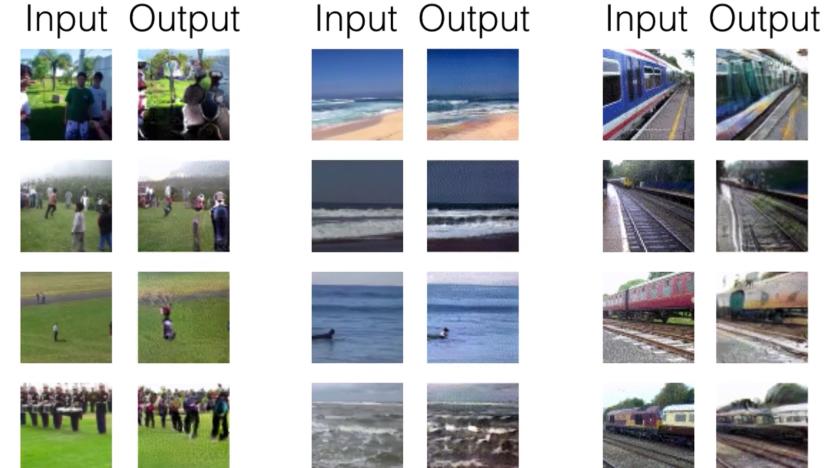
AI can create videos of the future
Loads of devices can preserve moments on camera, but what if you could capture situations that were about to happen? It's not as far-fetched as you might think. MIT CSAIL researchers have crafted a deep learning algorithm that can create videos showing what it expects to happen in the future. After extensive training (2 million videos), the AI system generates footage by pitting two neural networks against each other. One creates the scene by determining which objects are moving in still frames. The other, meanwhile, serves as a quality check -- it determines whether videos are real or simulated, and the artificial video is a success when the checker AI is fooled into thinking the footage is genuine.

Google's AI can translate language pairs it has never seen
Google's AI is not just better at grasping languages like Mandarin, but can now translate between two languages it hasn't even trained on. In a research paper, Google reveals how it uses its own "interlingua" to internally represent phrases, regardless of the language. The resulting "zero-shot" deep learning lets it translate a language pair with "reasonable" accuracy, as long as it has translated them both into another common language.

NHS to use Google DeepMind AI app to help treat patients
Google and the Royal Free London NHS Foundation Trust have announced a fresh five-year collaboration today, which will see the former's DeepMind AI used to improve patient care across the trust's various hospital sites. The partnership will focus on Streams, a mobile app the pair have been working on since late last year that's been approved as a medical device by the UK's health regulator. DeepMind will analyse blood test results as they come in and flag when patients might be at risk of acute kidney injury, proactively alerting carers through the Streams app.

Light-based neural network could lead to super-fast AI
It's one thing to create computers that behave like brains, but it's something else to make them perform as well as brains. Conventional circuitry can only operate so quickly as part of a neural network, even if it's sometimes much more powerful than standard computers. However, Princeton researchers might have smashed that barrier: they've built what they say is the first photonic neural network. The system mimics the brain with "neurons" that are really light waveguides cut into silicon substrates. As each of those nodes operates in a specific wavelength, you can make calculations by summing up the total power of the light as it's fed into a laser -- and the laser completes the circuit by sending light back to the nodes. The result is a machine that can calculate a differential math equation 1,960 times faster than a typical processor.

Smarter bots are coming to Facebook, Google and Amazon assistants
We keep hearing that robots are going to take our jobs, but a company called MindMeld is giving us an idea how with its "Deep-Domain Conversational AI Platform." It'll allow bots that can essentially replace customer service agents and even baristas by answering complicated voice or text queries over Google Assistant, Amazon Echo, Facebook Messenger and other popular platforms. Uniqlo, for one, will offer a Facebook bot that can answer questions about its products, services and retail locations with more detail than ever.
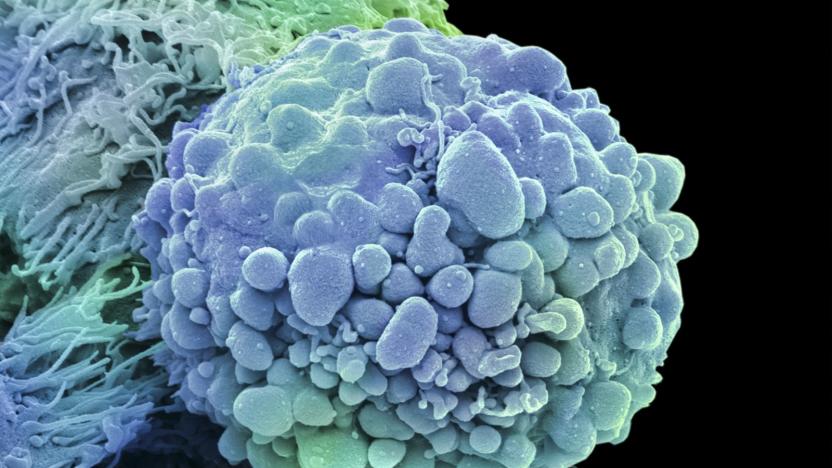
NVIDIA helps the US build an AI for cancer research
Microsoft isn't the only big-name tech company using AI to fight cancer. NVIDIA is partnering with the US Department of Energy and the National Cancer Institute to develop CANDLE (Cancer Distributed Learning Environment), an AI-based "common discovery platform" that aims for 10 times faster cancer research on modern supercomputers with graphics processors. The hardware promises to rapidly accelerate neural networks that can both spot crucial data and speed up simulations.

Facebook's new mobile AI can process video in real time
Facebook has started rolling out its "Caffe2Go" AI platform that does advanced style transfer video effects in real time using only your iOS or Android smartphone's horsepower. While the painterly effects are cool (see the video, below), the tech behind it is much more interesting. Deep learning normally requires content "be sent off to data centers for processing on big-compute servers," Facebook wrote, but with Caffe2Go, the processing can be done "in the palm of your hand."

'Watch Dogs 2' web app tries to reveal secrets in your selfies
Ubisoft is no stranger to producing poignant on the surface, but ultimately vapid marketing for its hacker-centric Watch Dogs series. And the latest example of that is a selfie analyzer for the upcoming sequel. The pitch is that your self-portraiture reveals a lot of hidden info about you, and uploading a picture to the web app will reveal it. Stuff like your age, what your picture says about you to employers, financial institutions, pharmaceutical companies, political organizations and police databases -- info based on details in your photos. That's in theory, of course. In practice the results don't pan out so well.

MIT makes neural nets show their work
Turns out, the inner workings of neural networks really aren't any easier to understand than those of the human brain. But thanks to research coming out of MIT's Computer Science and Artificial Intelligence Laboratory (CSAIL), that could soon change. They've devised a means of making these digital minds not just provide the correct answer, classification or prediction, but also explain the rationale behind its choice. And with this ability, researchers hope to bring a new weapon to bear in the fight against breast cancer.

MIT taught a machine to give you nightmares
Robots are learning to create zombie faces and apocalyptic landscapes, and with your help, they can make them even more terrifying. Researchers from MIT and Australia's CSIRO have created the Nightmare Machine, an AI algorithm that can transform a normal face or landscape into nightmare fuel. The AI analyzed 200,000 normal human faces and was soon able to generate its own, but the team wanted to take it in another, freakier direction.
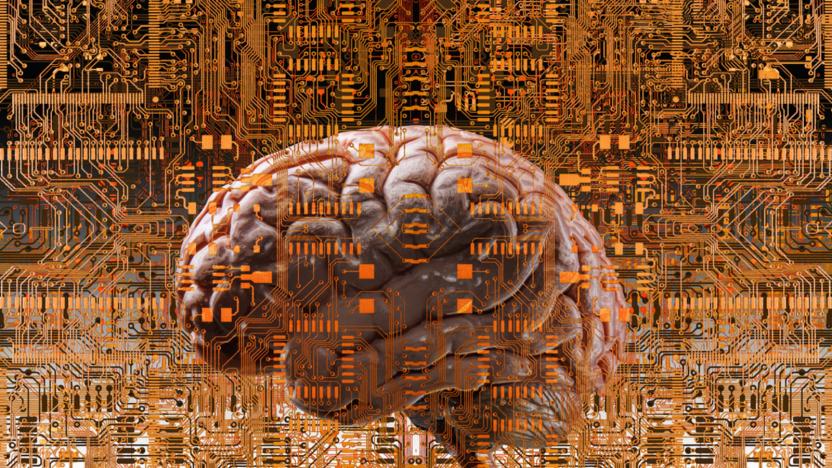
Google's AI created its own form of encryption
Researchers from the Google Brain deep learning project have already taught AI systems to make trippy works of art, but now they're moving on to something potentially darker: AI-generated, human-independent encryption. According to a new research paper, Googlers Martín Abadi and David G. Andersen have willingly allowed three test subjects -- neural networks named Alice, Bob and Eve -- to pass each other notes using an encryption method they created themselves.

Google's arty filters one-up Prisma by mixing various styles
Basic filters are soooo last year, and Google knows it. It's all about turning your mundane pet photos into works of art now, spearheaded by popular mobile app Prisma. Since it launched earlier this year, Prisma's added an offline mode and video support (albeit after a me-too competitor), but just a few days ago Facebook revealed it's also working on style transfer tech for live video -- though Prisma says it's going to beat the social network to the punch in a matter of days. Now, Google has revealed it's going one better, detailing a system that can mix and match multiple art styles to create photo and video filters that are altogether unique.
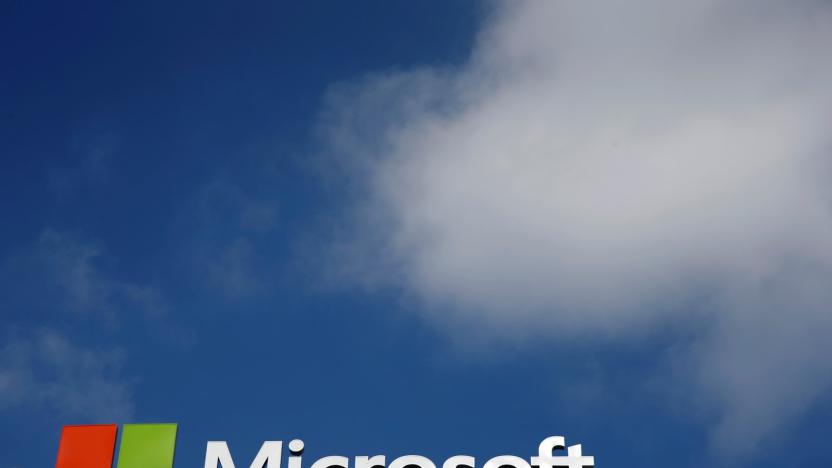
Microsoft makes its deep learning tools available to all
The same internal, deep learning tools that Microsoft engineers used to build its human-like speech recognition engine, as well as consumer products like Skype Translator and Cortana, are now available for public use. Redmond announced today that it is open-sourcing the Cognitive Toolkit that has led to many key developments coming out of its dedicated AI division. In other words: anyone can now train their own artificial intelligence.
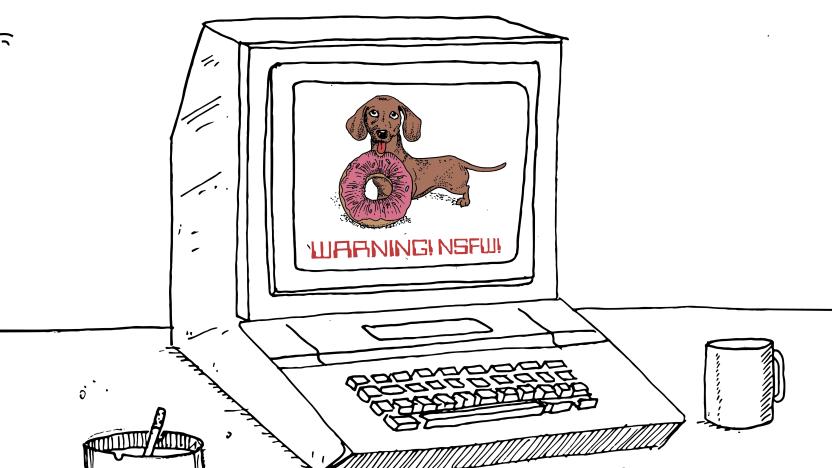
Artificial intelligence won't save the internet from porn
"I shall not today attempt further to define the kinds of material I understand to be embraced within that shorthand description ["hard-core pornography"], and perhaps I could never succeed in intelligibly doing so. But I know it when I see it, and the motion picture involved in this case is not that." -- United States Supreme Court Justice Potter Stewart In 1964, the Supreme Court overturned an obscenity conviction against Nico Jacobellis, a Cleveland theater manager accused of distributing obscene material. The film in question was Louis Malle's "The Lovers," starring Jeanne Moreau as a French housewife who, bored with her media-mogul husband and her polo-playing sidepiece, packs up and leaves after a hot night with a younger man. And by "hot," I mean a lot of artful blocking, heavy breathing and one fleeting nipple -- basically, nothing you can't see on cable TV.

Yahoo open-sources machine learning porn filter
Yahoo is the latest tech company to open source its computer vision code. The beleaguered outfit's application for it? Filtering porn. Yahoo hopes that its convolutional neural net (CNN) will empower others to better guard innocent eyes, but admits that because of the tech's very nature (and how the definition of "porn" can vary wildly), that the CNN isn't perfect. "This model is a general purpose reference model, which can be used for the preliminary filtering of pornographic images," a post on the Yahoo Engineering Tumblr says. "We do not provide guarantees of accuracy of output, rather, we make this available for developers to explore and enhance as an open source project." The code is available on Github at the moment, and if you need any testing material, well, there isn't exactly a shortage of it on Tumblr. Just ask Indonesia.





